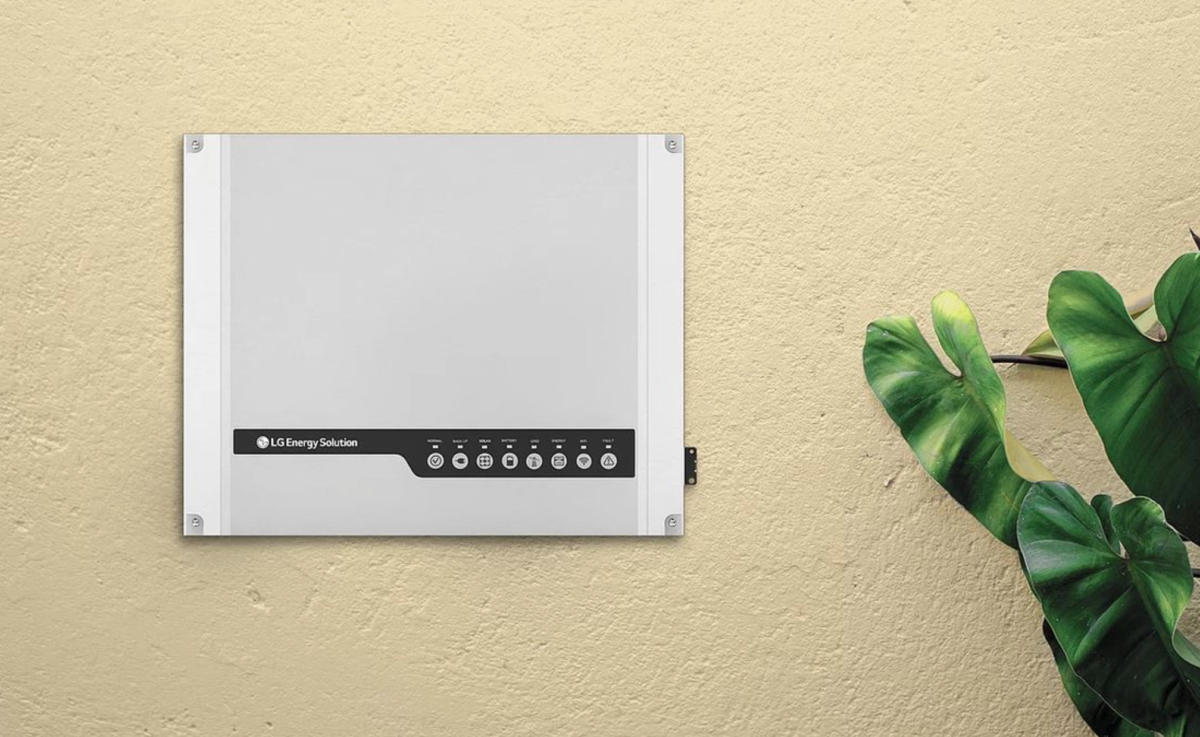From pv magazine International
South Korean battery manufacturer LG Energy Solution has launched a new inverter in the Australian market, adding a 5 kW hybrid inverter to its residential energy storage unit (RESU) home battery energy storage range.
LG Energy Solution said the new LGES-5048 hybrid inverter would be available in Australia from November. It described it as a highly efficient AC-coupled or DC-coupled unit that when coupled with a battery can deliver back-up power and keep essential appliances running during grid interruptions or power outages.
LG said the hybrid inverter is designed for either new solar and storage installations, or to add storage to an existing solar system. The company said the RESU Home battery and LGES-5048 inverter pairing allows up to 7.5 kW of solar PV capacity for new systems and up to 7.5 kW expansion of existing solar PV systems, including those installed on three-phase power.
The company said the inverter, which measures 516 mm x 440 mm x 184 mm and weighs in at 30kg and has 97% efficiency, and max voltage of 580 W DC. It has an operating temperature range of -25 C to 60 C, fan-less design, low noise emissions, and comes with a 10-year warranty. Customers also have the option to add automated remote control, such as with virtual power plant (VPP) participation.
The LGES-5048 is designed to fit with LG’s RESU Home range of lithium-ion residential battery energy storage solutions which includes the RESU6.5 (6.5 kWh), RESU10 (9.8kWh), RESU12 (11.7 kWh) and RESU13 (12.4 kWh) versions with each inverter able to connect up to two battery units.
LG Energy Solution Residential General Manager Philip Crotty said the range of battery and inverter-pairing capacities allows system designs to be tailored to each household’s unique requirements, catering for a “clear trend” towards larger solar PV systems backed by battery storage as solar feed-in tariffs are reduced or eliminated.
“Exporting excess solar power is increasingly disallowed in some regions with high solar penetration and excess solar power is simply of higher value to the consumer than it is to the utilities,” he said. “These changes reduce the value proposition for solar PV-only and increase the value proposition of solar PV plus battery storage.”
Crotty said there is a growing demand for home batteries with more than half of existing home battery users looking to scale up their energy capacity for increased energy resiliency.
He said the Covid-19 pandemic had contributed to the rise in residential demand, having triggered a worldwide stay home and work from home culture, with indoor activities like video conferencing, streaming, chatting and gaming increasing in popularity.
“There is a trend towards larger capacity batteries and customers who want to leave open the possibility of expanding their batteries in the future,” he said. “This is particularly notable for those who have already experienced the benefits of having batteries and want even more flexibility in their power system.”
This content is protected by copyright and may not be reused. If you want to cooperate with us and would like to reuse some of our content, please contact: editors@pv-magazine.com.









By submitting this form you agree to pv magazine using your data for the purposes of publishing your comment.
Your personal data will only be disclosed or otherwise transmitted to third parties for the purposes of spam filtering or if this is necessary for technical maintenance of the website. Any other transfer to third parties will not take place unless this is justified on the basis of applicable data protection regulations or if pv magazine is legally obliged to do so.
You may revoke this consent at any time with effect for the future, in which case your personal data will be deleted immediately. Otherwise, your data will be deleted if pv magazine has processed your request or the purpose of data storage is fulfilled.
Further information on data privacy can be found in our Data Protection Policy.